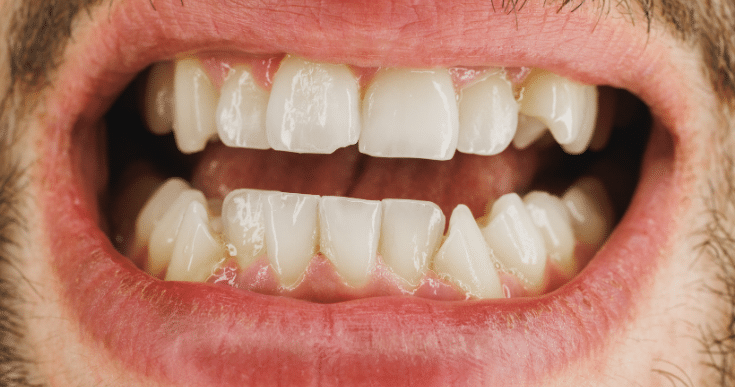
As we age, our oral health becomes increasingly important. From cavities to gum disease and everything in between, dental issues can make a significant impact on our overall well-being. And for the elderly population, who often face unique challenges when it comes to maintaining optimal oral hygiene, these issues can be even more concerning. In this post, we’ll explore the top five dental problems that affect seniors and provide tips on how to prevent them so you can keep your smile healthy and bright well into your golden years!
What are the Top 5 Dental Issues That Affect the Elderly?
As we age, our teeth and gums can become more vulnerable to a variety of dental problems. Here are the five most common dental issues that affect seniors and what you can do to prevent them:
1. Tooth Decay:
Tooth decay is one of the most common dental problems in seniors. It occurs when the enamel of your teeth breaks down, exposing the underlying dentin to bacteria. This can lead to cavities, pain, and sensitivity. To prevent tooth decay, brush your teeth twice a day with fluoride toothpaste, floss daily, and see your dentist regularly for checkups and cleanings.
2. Gum Disease:
Gum disease is another common dental problem in seniors. It occurs when the gums become inflamed and starts to pull away from the teeth. This can lead to bleeding gums, pain, and eventually tooth loss. To prevent gum disease, brush your teeth twice a day with fluoride toothpaste, floss daily, and see your dentist regularly for checkups and cleanings.
3. Dry Mouth:
A dry mouth is a condition that often affects seniors due to medications or other health conditions. When there is not enough saliva in the mouth, it can lead to tooth decay and gum disease. To prevent dry mouth, drink plenty of water throughout the day and avoid tobacco products.
4. Oral Cancer:
Oral cancer is one of the top dental issues that affect the elderly. It is important to be aware of the symptoms of oral cancer and to see a dentist for regular checkups. Oral cancer can be treated if it is caught early.
5. Root Caries
Root caries are a type of tooth decay that affects the roots of the teeth. The roots of the teeth are not protected by enamel, so they are more susceptible to decay. Root caries can cause the teeth to become loose and eventually fall out.
How to Prevent Common Dental Problems in the Elderly?
As we age, our risk of developing certain dental problems increases. However, there are steps we can take to prevent or minimize these problems. Here are some of the most common dental issues affecting the elderly and how to prevent them:
Regular Dental Checkups
The elderly are more susceptible to dental problems for a variety of reasons. Poor oral hygiene, medications that cause dry mouth, and gum disease can all lead to tooth decay and other serious issues. That’s why it’s so important for seniors to see their dentist regularly for checkups and cleanings.
During a regular dental visit, the dentist will examine the teeth and gums for any signs of trouble. They will also clean the teeth and provide advice on how to keep the mouth healthy. Seniors should be sure to see their dentist at least twice a year, or more often if they have any concerns about their oral health.
Good Oral Hygiene Practices
As we age, our risk for developing dental problems increases. Fortunately, there are steps we can take to prevent or reduce the severity of many common elderly dental issues. Here are the top dental issues that affect the elderly, and how to prevent them:
1. Gum Disease: Gum disease is a bacterial infection of the gums that can lead to tooth loss. Good oral hygiene, including regular brushing and flossing, is the best defense against gum disease. Be sure to see your dentist regularly for professional cleanings and checkups.
2. Tooth Decay: Tooth decay is caused by bacteria in the mouth that break down sugars and starches, causing cavities. To prevent tooth decay, brush your teeth at least twice a day with fluoride toothpaste, floss daily, and eat a balanced diet rich in fruits and vegetables. Avoid sugary snacks and drinks as well as acidic foods and drinks (such as citrus fruits and juices) that can damage tooth enamel.
3. Dry Mouth: Dry mouth is a common problem in older adults due to reduced saliva production. Saliva helps keep our mouths healthy by washing away food debris and bacteria. To combat dry mouth, drink plenty of water throughout the day and chew sugar-free gum or candy to stimulate saliva production. Avoid tobacco products, which can further contribute to dry mouth.
4. Oral Cancer: Oral cancer rates are on the rise in older adults due to increased use of tobacco products (including cigarettes
Utilizing Fluoride Treat
Fluoride treatments are one of the most effective ways to prevent cavities, and they are especially important for seniors. When choosing a fluoride treatment, it is important to select one that is appropriate for your needs. There are many different types of fluoride treatments available, so it is important to speak with your dentist about which type would be best for you.
Conclusion
As you can see, dental health is an important issue for seniors and it’s one that shouldn’t be ignored. Taking the right steps to prevent these common issues can help ensure that your elderly loved ones stay in good oral health. By taking a proactive approach to their dental care, such as visiting the dentist regularly, brushing and flossing at least twice daily, using fluoride toothpaste, and avoiding sugary snacks or drinks, seniors can maintain a healthy smile well into their golden years.
FAQs:
A: The most common dental issues that affect the elderly are gum disease, tooth decay, and tooth loss.
A: There are a few ways to prevent these dental issues. First, practice good oral hygiene by brushing and flossing regularly. Second, see your dentist for regular checkups and cleanings. Third, eat a healthy diet with plenty of fruits and vegetables. Fourth, don’t use tobacco products.
A: If you have one of these dental issues, it’s important to see your dentist as soon as possible. They will be able to help treat the issue and prevent it from getting worse.




